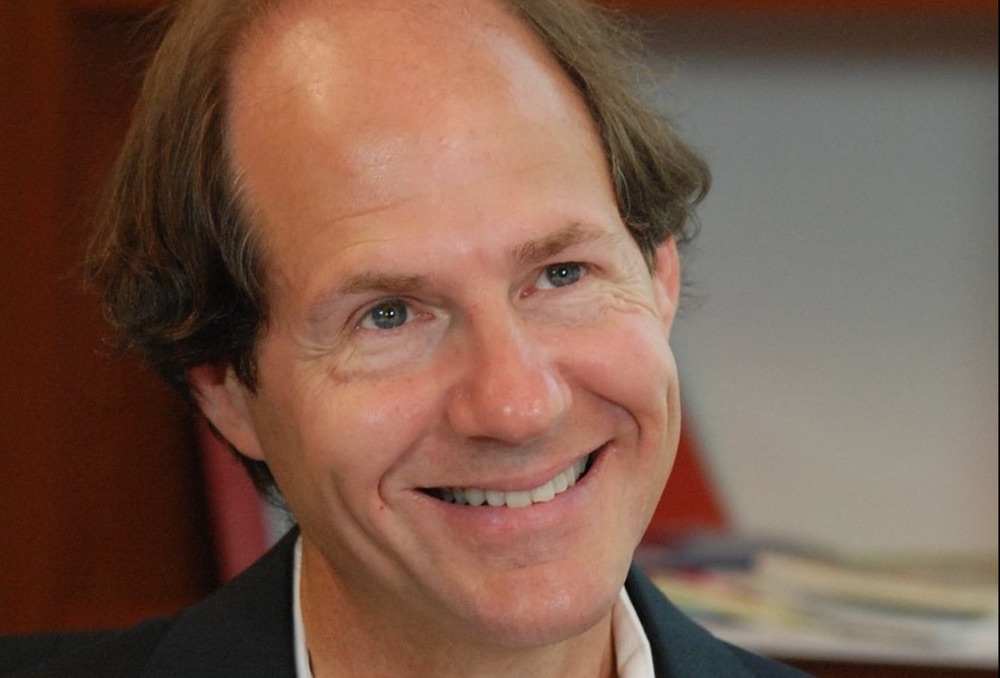
Legal scholar and Too Much Information author Cass Sunstein
Cass Sunstein is a legal scholar at Harvard Law School and the author of the new book Too Much Information: Understanding What You Don’t Want To Know; he was also administrator of the White House Office of Information and Regulatory Affairs under President Barack Obama. Before taking part in the Zócalo/Commonwealth Club event “How Much Information Is Too Much?,” Sunstein called into the green room to talk about why mornings are a good time to take creative risks, the advice he’s gotten from an economist and a pair of philosophers, and his Netflix guilty pleasures.
What do you wake up to?
My Labrador Retrievers. The 3-year-old giving me a reminder that it’s morning—which means it’s time to walk and time to eat.
As a kid what did you want to be when you grew up?
A professional baseball player. That was priority number one. I was average, or possibly even above average, but that’s not quite good enough to make it to the professional leagues.
Did you have a player you particularly looked up to?
Completely. Carl Yastrzemski. Number eight for the Boston Red Sox. Triple Crown winner. The leader of the team for the legendary and miraculous impossible dream year of 1967, when the Red Sox made it to the World Series. The song “Impossible Dream” was defining that year, and Carl Yastrzemski was the dreamer who made it happen.
Where do you come up with your best ideas?
There’s more creativity in the morning than anywhere else. Sometimes when I’m working in the morning, my fingers end up finding something that I didn’t know I had in my head. So maybe nine, 9:30 in the morning, sometimes there’s more willingness to take a risk with respect to ideas than at, say, three in the afternoon.
What’s your hidden talent?
I played squash in college on a national championship team. And I play competitive squash now, to the limited extent that COVID-19 allows it. If I had a hidden talent, that’s it.
What do you think is the most beautiful film you’ve ever seen?
Days of Heaven. There’s no question about it. Written by Terrence Malick, with Richard Gere and Sam Shepard and Brooke Adams, it is a film of surpassing beauty—scenically, but also the music is an incredible complement. I saw it after it came out in 1978. The experience of seeing it in the theater was breathtaking. I think it’s the only movie I’ve seen that, in terms of sheer beauty, falls in that category where you’re transported. There’s a scene where a composition played by Leo Kottke connects with something in the human experience that you’re lucky if you have it occasionally in your life; art rarely gets there, and this does.
What do you do to decompress?
Usually I will go on Netflix and watch something that is either funny or a guilty pleasure. So one I’m watching now is Biohackers on Netflix. It’s a German series, and it’s so good. I don’t feel very guilty about loving it. Something I recently finished, also on Netflix, is Dark Desire. It’s a mystery from Mexico with a ton of twists and turns. Let’s just say it’s not for children. But it’s really smart as well as being a genuinely guilty pleasure.
What’s the best advice you’ve ever received?
I got it from my [Nudge] co-author, Richard Thaler, the economist. I didn’t get it face to face. He sent me a draft of a graduation speech he gave, in which he spoke about how he got into behavioral economics. He said that when he was doing it as a graduate student, his advisor said, “This is terrible. You won’t have a career. Do real economics. Don’t do psychology stuff.” And he said that he rejected the advice of his advisor because he loved it so much. It was so much fun for him. So if you’re doing something you love, even if it doesn’t turn out great, at least you will have loved doing it.
What is the last thing that inspired you?
A paper that I often think about is called “Picking and Choosing,” by Edna Ullmann-Margalit and Sidney Morgenbesser, two philosophers, and it says that when things are hard, we shouldn’t choose—meaning try to figure out what’s best. We should just pick—meaning don’t even think about it. Just go for one rather than the other, not on the basis of reasons, because you’re not going to be able to figure out what’s better. I find in life that’s often very inspiring to think about. Like, if you’re at the store and don’t know what soup to choose, don’t worry over it, just pick—don’t choose. Often in respect to things in life, that’s surprisingly good advice.



